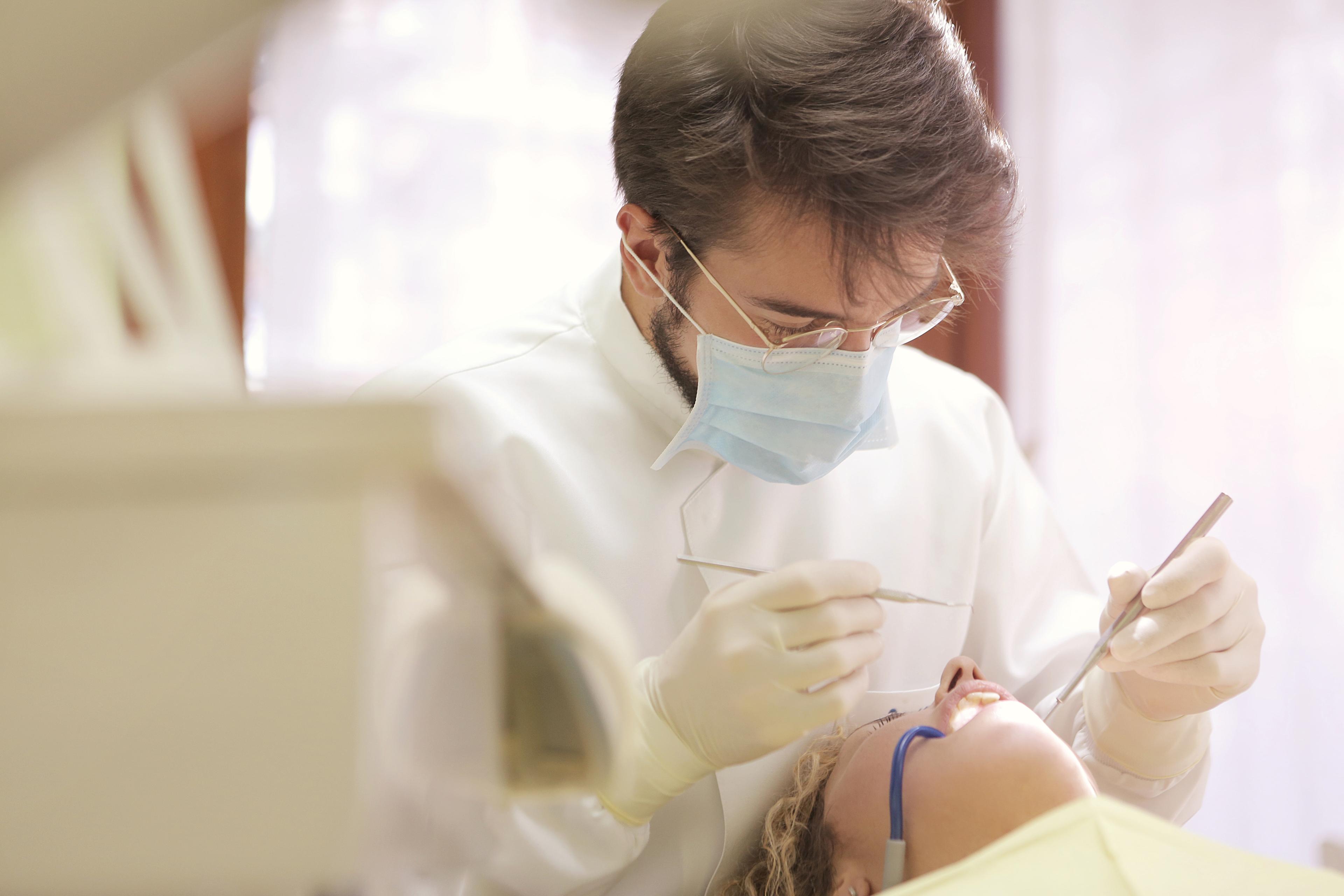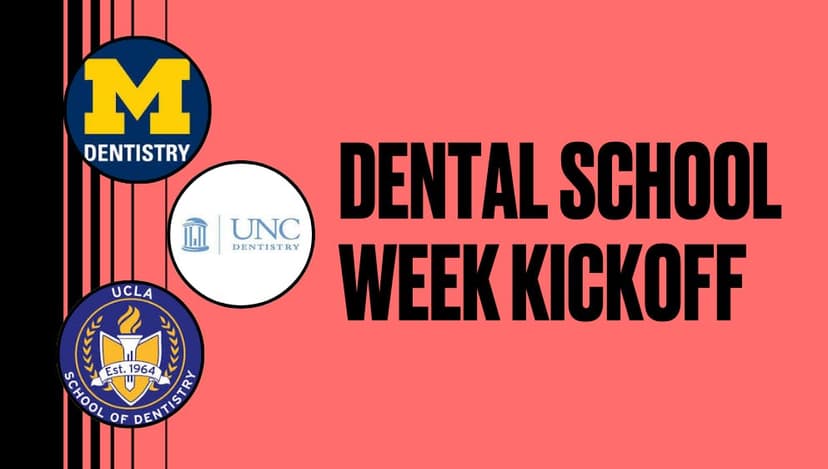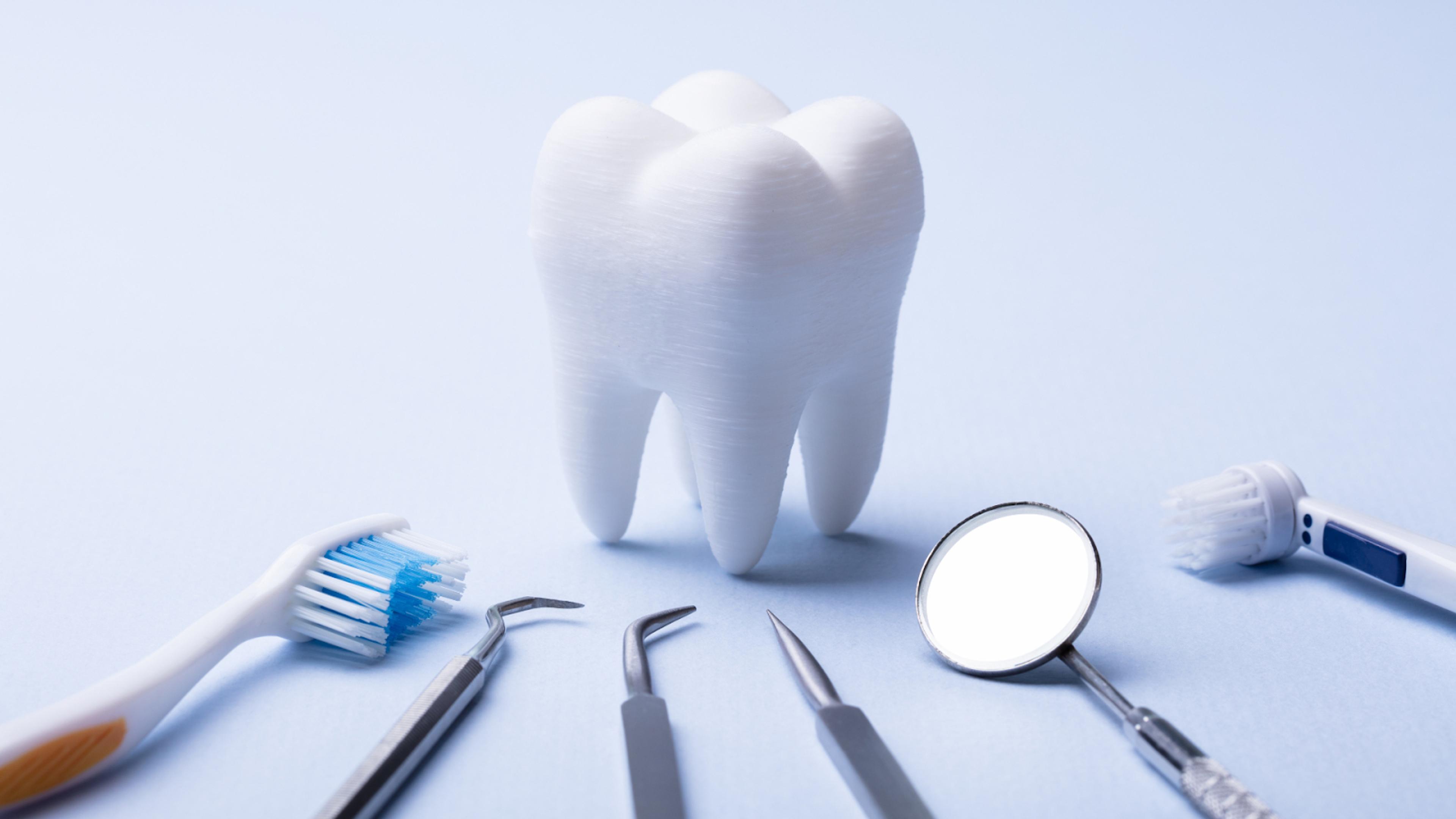Navigating Dental School Acceptance Rates: Strategies for Success
Are you considering a career in dentistry but worried about the competitive acceptance rates? Our article offers valuable strategies for navigating dental school acceptance rates and increasing your chances of success.
Posted June 13, 2025

Join a free event
Learn from top coaches and industry experts in live, interactive sessions you can join for free.
Table of Contents
If you're interested in becoming a dentist, the first step on that path is getting accepted into dental school. However, dental school acceptance rates can be notoriously competitive, creating a high barrier for entry into the program. Fortunately, by understanding the dental school acceptance process and developing an effective approach, you can significantly increase your chances of success. In this article, we'll cover everything you need to know about navigating dental school acceptance rates.
Understanding the Dental School Acceptance Process: What to Expect
Before you can successfully navigate the dental school acceptance process, you need to understand how it works. At the basic level, dental school admissions committees seek students with strong academic backgrounds and relevant extracurricular experiences. They also look for evidence of character and leadership potential. The admissions process for dental schools typically requires a combination of grades, test scores, letters of recommendation, and interviews. Each dental school has its own specific requirements and admission standards, so it's essential to research the schools you're interested in and understand their unique application processes.
It's important to note that the dental school acceptance process is highly competitive. According to the American Dental Education Association, the average acceptance rate for dental schools in the United States is around 50%. This means that you need to have a strong application to stand out from the crowd. In addition to meeting the basic requirements, you should also consider gaining experience in the dental field through internships or volunteer work. This can demonstrate your commitment to the profession and give you an edge in the application process. Remember, the dental school acceptance process is a marathon, not a sprint. It takes time, effort, and dedication to succeed.
Tips for Improving Your Dental School Application
Once you understand the application process, it's time to focus on improving your application. One of the most crucial components of your application is your academic record. Admissions committees will be looking for evidence of strong performance throughout your undergraduate years. If your grades lagged at any point, consider retaking a course or improving your grades through additional coursework in the field.Additionally, it's essential to have a well-rounded application that reflects your interest in dentistry. Consider shadowing a dentist, volunteering in a dental care setting, or getting involved with a dental club or organization on campus. These experiences will not only help you build a robust application but also show admissions committees that you're genuinely passionate about the field.
Another important aspect of your dental school application is your personal statement. This is your opportunity to showcase your personality, experiences, and goals in your own words. Take the time to craft a compelling and unique statement that highlights your strengths and demonstrates your commitment to the field of dentistry. Be sure to have multiple people review and provide feedback on your statement to ensure it is polished and effective.
Key Factors That Admissions Committees Look For in Dental School Applicants
As mentioned earlier, dental school admissions committees look for a blend of academic success, relevant experiences, character, and leadership potential when reviewing applications. Therefore, it's essential to showcase these qualities throughout your application.In terms of academics, dental schools often look for GPAs above 3.0 in your undergraduate studies. Strong performance in subjects like chemistry, biology, and physics is also important since these will be foundational sciences in dental school.Your experiences in the field as a volunteer, intern, or shadowing professional will show your passion for dentistry. These experiences should demonstrate that you understand the field and have practical skills that can prepare you for dental school. Leadership, community service, and extracurricular activities can also demonstrate character and leadership potential.
How to Ace Your Dental School Interview: Top Tips and Tricks
After you submit your application, the next step is the interview process. This can generate a lot of anxiety for many applicants, but with proper preparation and tips, you can ace the interview.One crucial tip is to prepare for common interview questions that dental schools often ask. These may include questions related to your motivation for pursuing dentistry, your strengths and weaknesses, your experiences with dental care, and your ability to handle stressful situations.Another key tip for acing your dental school interview is to practice beforehand. Consider doing mock interviews with friends or contacting alumni who have gone through the process to get their insight and feedback.
The Importance of Extracurricular Activities in Dental School Admissions
As mentioned earlier, extracurricular activities can play a significant role in your dental school application. These activities demonstrate your character, interests, and experiences outside of the classroom, which can set you apart from other candidates.However, it's essential to focus on quality over quantity when it comes to extracurricular activities. Choose experiences that are directly related to dentistry or that showcase your leadership potential or community involvement.
How to Choose the Right Dental Schools to Apply To
When it comes to choosing which dental schools to apply to, the main considerations should be program quality, location, size, and cost. It's essential to research and compare each program to maximize your chances of admission and find a school that aligns with your needs and goals.Take time to research each school's admission rates, class size, and curriculum to determine how well it aligns with your interests and focuses as a future dental student. Additionally, consider the location and cost of attendance, and how they fit in with your overall goals and aspirations.
Common Mistakes to Avoid When Applying to Dental School
To ensure your application stands out, it's also important to avoid common mistakes that can hurt your chances of acceptance. These include submitting incomplete or incorrect applications, failing to provide cohesive and compelling essays, applying to too few or too many schools, and failing to prepare adequately for interviews.
Financial Aid and Scholarship Opportunities for Dental School Students
Once you're accepted into a dental school, the next step is figuring out how to pay for your education. Fortunately, there are several financial aid and scholarship opportunities available to dental students. These include federal and private loans, work-study programs, and scholarships specific to the dental field. Additionally, some states offer loan forgiveness or repayment programs for dentists practicing in underserved areas. It's essential to research and pursue these options to minimize your student debt burden.
Preparing for Life as a Dental Student: What You Need to Know
Starting dental school is an exciting and challenging endeavor. To prepare for life as a dental student, you'll need to develop strong study habits, time management skills, and effective strategies for balancing school with other responsibilities, such as work or family obligations.Additionally, it's essential to prepare for the rigorous academic coursework and hands-on clinical training involved in dental school. Consider reaching out to current dental students or alumni to get an idea of what to expect and how to prepare.
Balancing Work and Study in Dental School: Tips for Success
Many dental students work while attending school to cover expenses or maintain independence. However, balancing work and study can be challenging, and requires effective time management and prioritization skills.One tip for balancing work and study is to create a realistic schedule that prioritizes school work and allows for regular breaks and self-care. Additionally, consider reducing your work hours during particularly demanding periods, such as exam weeks or during clinical rotations.
How to Succeed in Your First Year of Dental School
The first year of dental school is often the most challenging. However, with proper preparation and focused study habits, you can successfully navigate this transition. One tip for succeeding in your first year of dental school is to establish strong study habits from the outset. Set aside dedicated study time each day, review class material regularly, and engage with study groups or peer support networks. Additionally, it's crucial to seek out mentorship from older dental students or alumni who can provide advice and guidance through the challenges of the first year.
Building Strong Relationships with Professors and Peers in Dental School
Building strong relationships with professors and peers is essential for success in dental school. Strong relationships can help you learn and navigate the challenges of dental school while also preparing you for life as a practicing dentist.One tip for building strong relationships with professors and peers is to participate actively in class and engage in group activities or projects. Additionally, consider attending extracurricular events or joining student organizations to broaden your network and build strong, lasting relationships.
Preparing for the National Board Dental Exam: Strategies for Success
The National Board Dental Exam is one of the biggest hurdles for dental students. It requires extensive study and preparation to pass, and can be a source of significant anxiety for many students.To prepare for the National Board Dental Exam, it's essential to start early and develop a comprehensive study plan. Consider using review guides or attending exam prep courses, and use study groups or peer support to test your knowledge and prepare for the exam.
Conclusion
Navigating dental school acceptance rates can be challenging, but with the strategies outlined in this article, you can develop an effective approach that maximizes your chances of acceptance. Whether you're still in the application process, starting your journey in dental school, or preparing for the National Board Dental Exam, these tips and tricks will provide valuable guidance and support.
Browse hundreds of expert coaches
Leland coaches have helped thousands of people achieve their goals. A dedicated mentor can make all the difference.

















